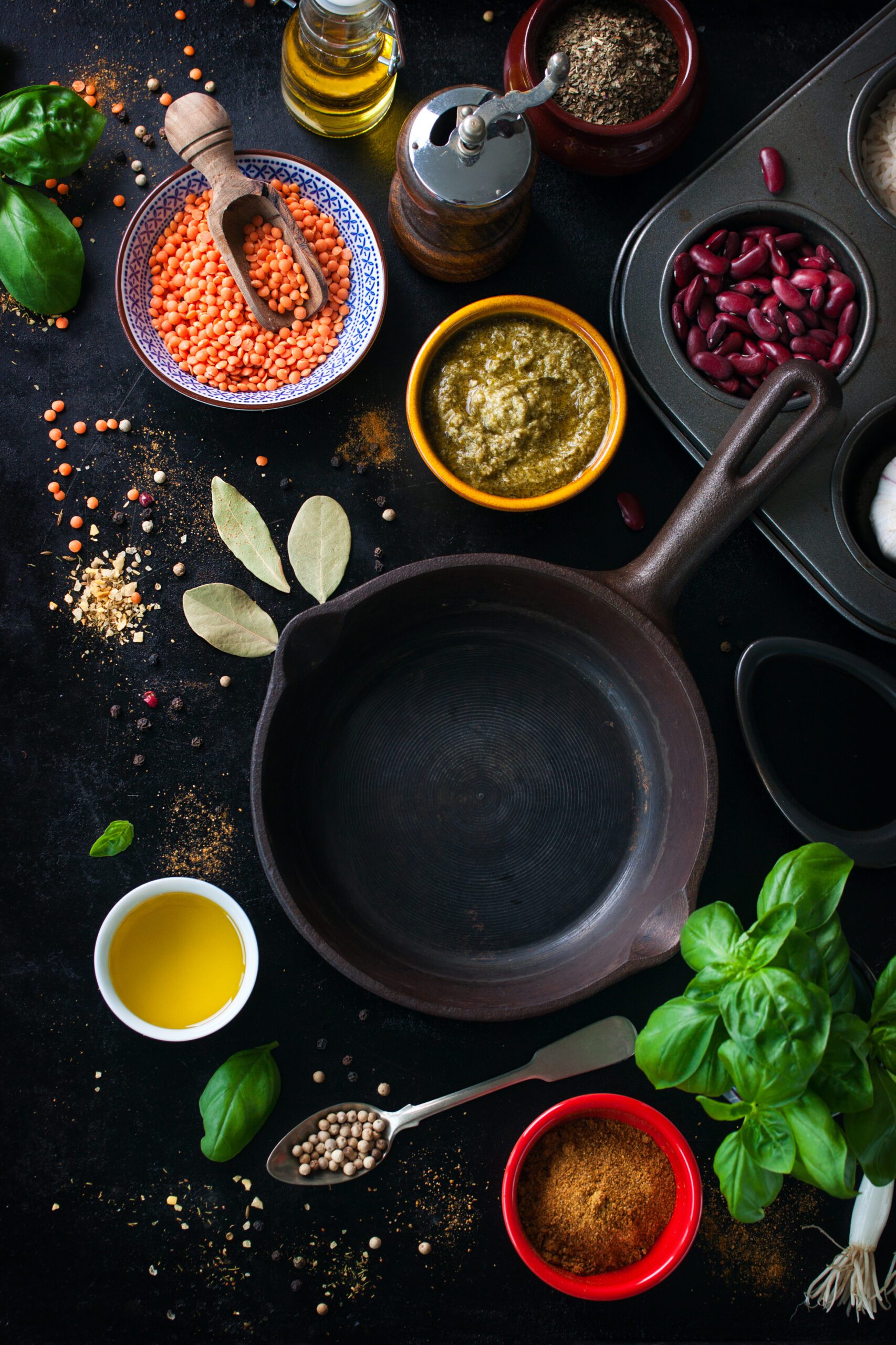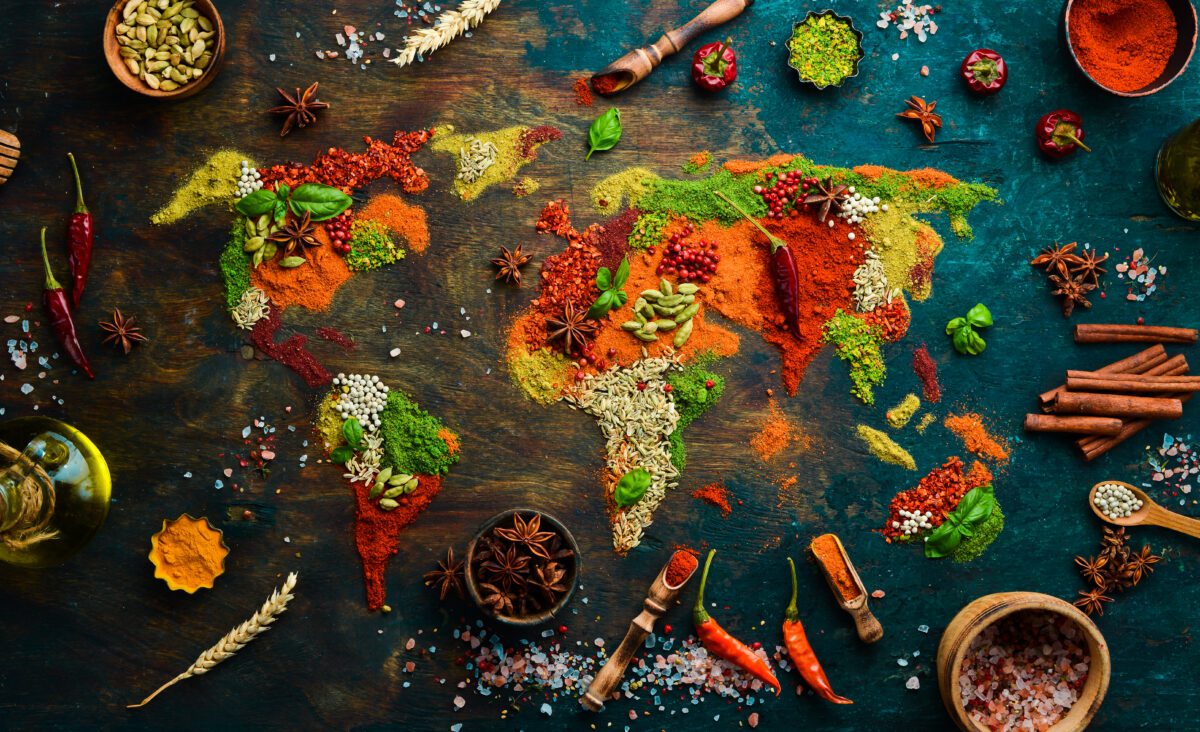Cuisine: A Universal Cultural Expression
Cuisine is a universal cultural expression that tells the story of people, their traditions, and their evolutions.
Through the centuries, different world cuisines have been enriched by various influences, giving rise to an incredible diversity of flavors and culinary techniques.
This article offers you a gastronomic journey through several countries, highlighting the essence of their cuisine and their global influence.


Early traces of modern cuisine
The earliest traces of what we consider modern cuisine date back to antiquity. Egyptian, Greek, and Roman civilizations laid the foundations of gastronomy by developing sophisticated cooking techniques and using a variety of ingredients. Historians agree that banquets and feasts were already common in Roman times, where dishes were carefully prepared and elegantly presented.
Research indicates that the first cookbooks were written by the Romans, such as Marcus Gavius Apicius’s work, “De re coquinaria,” which compiles numerous recipes and culinary techniques of the time.
Another source: https://penelope.uchicago.edu/Thayer/E/Roman/Texts/Apicius/Review*.html
Exploring cuisine in various countries
France
French cuisine is often regarded as one of the most refined and influential in the world. It is synonymous with haute cuisine, with great attention to technique, presentation, and the quality of ingredients. Iconic dishes like coq au vin, bouillabaisse, and croissants have gained international fame, making France a must-visit destination for food enthusiasts.
Our selection of french recipes
Canada
Canadian cuisine is a rich blend of Indigenous culinary traditions and various influences brought by waves of immigration. The Indigenous peoples of Canada developed a cuisine based on the natural resources available, such as game, fish, berries, and root vegetables. Dishes like bannock, pemmican, and smoked fish are integral to this culinary tradition. With the arrival of European settlers, Canadian cuisine was enriched with new techniques and ingredients, creating a unique mosaic of flavors. Today, poutine, tourtières, and maple syrup are iconic symbols of Canadian cuisine.
Our selection of canadian recipes
Italy
Italy is famous for its delicious cuisine, which relies on fresh and high-quality ingredients. Italian cuisine is diverse and regional, with iconic dishes such as pizza, pasta, and risotto. The Italian culinary tradition has a major influence worldwide, especially through Italian restaurants that flourish in almost every country.
Our selection of italian recipes
Japan
Japanese cuisine is renowned for its delicate aesthetics and balance of flavors. Dishes such as sushi, ramen, and tempura are not only staples in Japan but have also gained worldwide popularity. Japanese cuisine emphasizes the freshness of ingredients and presentation, reflecting a culinary philosophy where every detail matters.
Our selection of japanese recipes
Mexico
Mexican cuisine is vibrant and spicy, rich in flavors and textures. Tacos, enchiladas, and guacamole are iconic dishes that showcase the diversity of Mexican cuisine. It is known for its generous use of spices and chilies, creating dishes that are both flavorful and colorful.
Our selection of mexican recipes
India
Indian cuisine is famous for its bold use of spices and herbs, creating complex and deep flavors. Each region of India has its own specialties, from the rich curries of the north to the spicy dishes of the south. Indian cuisine has a global influence, with Indian restaurants present in almost every major city worldwide.
Our selection of indian recipes
Conclusion
Cuisine is a universal language that transcends borders and unites cultures. Each country contributes to this global gastronomic wealth, offering unique flavors and valuable culinary traditions. By exploring world cuisines, we not only discover new tastes but also the history and culture of the people who created them. Whether in France, Italy, Japan, or elsewhere, every dish tells a story, and every meal is a celebration of human diversity.

